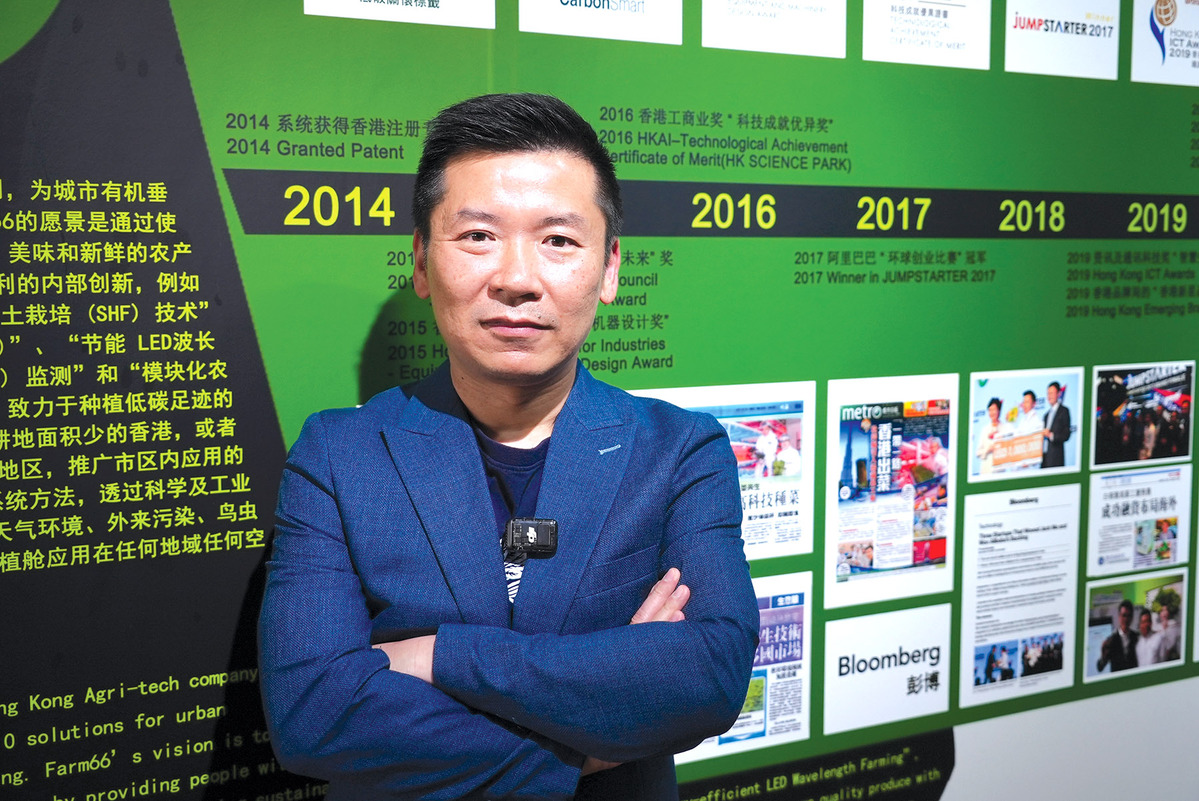Food in the 'box'


Expansion plans
To expand its mainland market, Tam plans to bring down the costs of operating container farms currently priced at up to $50,000 each. He hopes to achieve sales of 10 million yuan ($1.38 million) this year, and double it in a few years before contemplating an initial public offering.
Due to restrictions on cross-boundary capital flow between Hong Kong and the mainland, Tam hopes to find a mainland investor to expand his operations.
A growing number of economies, including Hong Kong and other cities in the Greater Bay Area, attach great importance to urban agriculture by providing greater support for technologies, land, capital and policy guidance.
Hong Kong's Blueprint for Sustainable Development of Agriculture and Fisheries, released in 2023, proposes to "integrate agriculture into urban lives" in the Northern Metropolis project, and aims to increase the city's annual vegetable production fourfold in 15 years.
With a focus on sustainable urban development, Tam introduced hydroponic agriculture to revitalize industrial buildings and became a pioneer in urban farming when he founded Farm66 in 2013.
The company's operation used to face regulatory obstacles as it changed the purpose of industrial buildings. Amid the backdrop of encouraging diversified farming, Tam convinced the authorities to amend the regulation after two years of negotiations, and hydroponic farming has been recognized for non-polluting industrial use.
After 12 years' development, urban farming industry has witnessed the decline of early startups and an influx of newcomers. Farm66 has stayed competitive with comprehensive planting systems, advanced agricultural solutions, and a wealth of research data.
"Food supply is one of the world's most critical issues. This is of paramount significance and offers a multitude of exploration possibilities," Tam says.
With high hopes for urban farming, he cites projections that if a building the size of Hong Kong's second-tallest skyscraper, 412-meter International Finance Centre, were to be used for vegetable cultivation, it could ensure a year-round supply for the entire city.
He says micro farms can offer a customized environment for plant growth, breaking geographical and climate restrictions. "For example, in a desert, we can create a French environment to grow lettuce, or replicate the climate of (China's) Changbai Mountain to cultivate ginseng. This is what traditional agriculture can't achieve."
"For a long time, agriculture has been plagued by uncertainties. We hope to leverage technologies to enhance its stability, enabling farmers and investors to get predictable returns."
Contact the writer at bingcun@chinadailyhk.com
- China accelerates nuclear fusion engineering, targeting power generation demonstration by 2030
- Xinjiang leads China in cross-border rail traffic, central Asian connectivity in 2025
- Astronauts say training helped ensure safe return
- FAST reveals insights into cosmic signals
- Year's first private rocket mission takes off
- Taiwan separatists warned of action



































